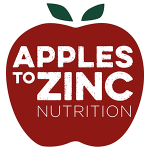What was in your breakfast bowl this morning? Was it a healthy breakfast?
Breakfast is arguably the most important meal of the day. Eating within an hour or two of waking can help with weight regulation1, concentration2 and even your daily mood3
Don’t be fooled into thinking that skipping breakfast will save on calories. In reality, you are more likely to snack on high fat products and overeat throughout the remainder of the day if you haven’t eaten at breakfast time. Countless studies show that eating breakfast is associated with a more healthy weight1
Whether you are at work, at school or at home we all need to concentrate and breakfast helps maximise that too. Studies with school children show improved memory and learning when breakfast was frequently consumed2. So to improve work efficiency and concentration in meetings or classrooms make sure you’ve had a decent breakfast!
I suspect at one time or another we’ve all felt “H-angry” – that irritation and anger because we know we are hungry and just need to eat something…and guess what – breakfast may help reduce those feelings too. Eating a low GI, protein containing breakfast allows a steady supply of glucose to enter the brain keeping our mood more stable in the lead up to lunch3,4.
And it’s not just limited to these benefits. Studies have also shown breakfast consumption is linked to reduced cholesterol, lower heart disease, improved digestion and even less risk of getting a common cold4
BUT REMEMBER – Not all breakfasts are created equally!
It is important to ensure that what you eat for breakfast is providing you with key nutrients and not loading you full of sugar.
Having low glycaemic Index foods or adding protein to your breakfast helps to slow down the sugars released into your body which are linked with feelings of fullness for longer and help you to avoid a mid-morning crash in energy which see you hunting down a biscuit tin or vending machine and becoming irritable3,4
Here is a handy guide to eating a nutrition and healthy breakfast:
- Take time to plan what you eat to ensure the food is there and you have time to prepare it
- Don’t eat breakfast like it’s a dessert – cereal bars, cereal biscuits, jams and sweet fruity yoghurts are all packed with sugars which will cause your blood sugar levels to go sky high and then crash leaving you with no energy and making you hungry
- Choose whole grains where possible – for toast try a multigrain or seeded loaf and with cereals go for the whole grain varieties but watch the sugar content
- Don’t add sugar to cereals – they are sweet enough!
- Don’t forget eggs – they are packed with protein and great for keeping us full. Have them poached, boiled or scrambled
- Fruit juices are laden with sugar. The average 200ml glass of orange juice contains 4 teaspoons of sugar. Try water with some lemon squeezed in
- Porridge oats are a perfect winter warmer, keep us full and are known to help lower cholesterol – cook them with water or almond milk and sprinkle with berries.
- Add seeds and chopped nuts to yoghurts to give them crunch and slow the release of sugars into our blood stream
- Ignore marketing! Just because the cereal says nutritious doesn’t mean it necessarily is. Check the label!
If you would like more information about this blog or feel that you would benefit from a one to one consultation about your health and how changing the foods you eat may help please contact me on info@applestozinc.co.uk or 07554 626765
Apples to Zinc Nutritional Therapy is based in Maidenhead, Berkshire
References:
1 Forester S (2007) The Implications of Eating or Skipping Breakfast: Physiology, Behavior, and the Satiety Hormone Response. University of California, Davis, 125 pages.
2 Wesnes K. A., Pincock C., Scholey A. (2012). Breakfast is associated with enhanced cognitive function in schoolchildren. An internet based study. Appetite 59, 646–649
3 Micha, R., Rogers, P. J, Nelson, M. (2011). Glycaemic index and glycaemic load of breakfast predict cognitive function and mood in school children: a randomised controlled trial. British Journal of Nutrition, 106(10), 1552-1561.
4 Smith, A. P. (2011). Breakfast and adult’s and children’s behavior. Diet, Brain and Behavior: Practical Implications.
